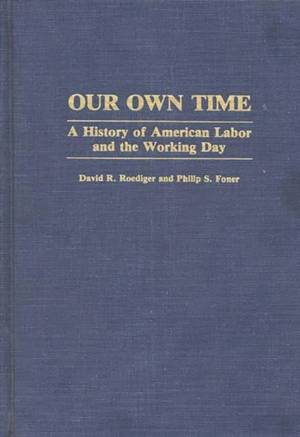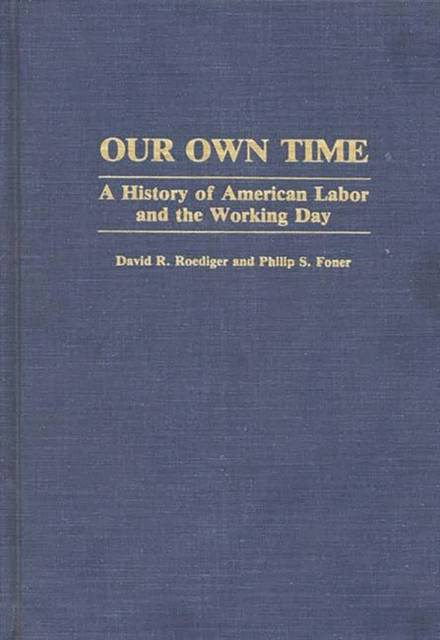
- Afhalen na 1 uur in een winkel met voorraad
- Gratis thuislevering in België vanaf € 30
- Ruim aanbod met 7 miljoen producten
- Afhalen na 1 uur in een winkel met voorraad
- Gratis thuislevering in België vanaf € 30
- Ruim aanbod met 7 miljoen producten
Zoeken
€ 161,45
+ 322 punten
Uitvoering
Omschrijving
Our Own Time provides the first full account of the movement to shorten the working day in the United States. Combining the narrative and trade union emphasis of traditional labor history with the focus on culture and the labor process characteristic of contemporary labor history, the book offers an illuminating reinterpretation of the history of the U.S. labor movement from the colonial period onward. The authors argue that the length of the working day or week historically has been the central issue raised by the American labor movement during its most vigorous periods of organization.
Beginning with a picture of working hours in colonial America and the early republic, Roediger and Foner then analyze the ideology of the movement for a ten-hour workday in the early nineteenth century. They demonstrate that the ten-hour issue was a key to the dynamism of the Jacksonian labor movement as well as to the unity of male artisans and female factory workers in the 1840s. The authors proceed to examine the subsequent demands for an eight-hour day, which helped to produce the mass labor struggles of the late nineteenth century and established the American Federation of Labor as the dominant force in American trade unionism. Chapters on labor movement defeats following World War I, on the depression years, and on the lack of progress over the last half-century complete the study. Our Own Time will be an ideal supplemental text for courses in U.S. labor and economic history.Specificaties
Betrokkenen
- Auteur(s):
- Uitgeverij:
Inhoud
- Aantal bladzijden:
- 392
- Taal:
- Engels
- Reeks:
Eigenschappen
- Productcode (EAN):
- 9780313260629
- Verschijningsdatum:
- 27/03/1989
- Uitvoering:
- Hardcover
- Formaat:
- Genaaid
- Afmetingen:
- 156 mm x 234 mm
- Gewicht:
- 730 g

Alleen bij Standaard Boekhandel
+ 322 punten op je klantenkaart van Standaard Boekhandel
Beoordelingen
We publiceren alleen reviews die voldoen aan de voorwaarden voor reviews. Bekijk onze voorwaarden voor reviews.











